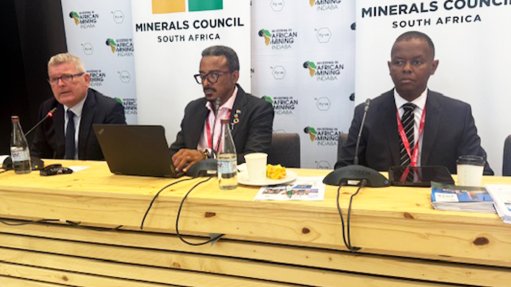Forced return to the office
Loadshedding has become a new normal in South Africa, with the intensity having worsened in the past two years, and word is that we should brace ourselves for this scourge for at least the next 18 months. That means another one-and-a-half years of disruption to the routines of individuals and entities in both the private and public sectors.
How the outages have affected – and continue to affect – productivity in all economic sectors and how this will shave off at least a sizeable fraction of a percentage point off South Africa’s gross domestic product growth and worsen the country’s already heavy unemployment burden is well documented.
One impact of loadshedding that hasn’t received much air time on our news broadcasts or column centimetres in our print media is its impact on working from home, a practice that started to take hold when Covid-19 struck in early 2020, when governments imposed restrictions on people movement to curb the spread of the virus. But in many cases working from home becomes very difficult, if not impossible, when an area is shed from the grid and the telecoms system starts playing up.
Many companies have invested in uninterruptible power supply systems in recent times, which means they are able to carry on with their normal activities, whether grid power is available or not. To ensure that employee productivity remains at optimum levels, many companies are requiring all employees – including those who now prefer to work from home – to report to the office every day.
Many commentators, including labour expert Osborne Molatudi, predict that South Africa will see a permanent return to the office this year. Molatudi told the SABC late last month: “On the basis of the practical challenges that are faced by many employees countrywide because of loadshedding and other related factors, an employer would be perfectly within his or her right to require that employees return to the office full time.”
Indeed, a survey conducted by professional services firm KPMG in 2022 – the results of which were published in November – shows that 76% of the South African CEOs whose views were canvassed expect their workforces to be back in the office on a full-time basis within three years. What’s more, not a single South African CEO sees full-time remote working arrangements as a viable option.
It’s a pity that loadshedding is going to leave South African employers with virtually little option but to enforce in-person work attendance. As has been proved by many studies, the work-from-home arrangement reduces worker burnout, boosts work-life balance as employees are freed up from daily commutes and nine-to-five office presenteeism. In some cases, the practice actually improves worker performance.
Cognisant of the above benefits, many global companies have started dangling flexibility as a job perk to existing and potential employees alike. And the upshot has been greater employee retention by companies that permit remote work. This is borne out by a survey of about 13 000 global workers that was conducted by consulting firm McKinsey & Company in July last year. Forty per cent said that of the respondents picked workplace flexibility as a top motivator in whether they stayed in a position, barely behind the salary that goes with the position, which was picked by 41% of the respondents. Twenty-six per cent had quit their last role because of a lack of flexibility.
What is clear from the above is that a sizable number of employees globally – and a majority of 87% in the US, according to the same McKinsey survey – prefer to work from home because of the advantages this arrangement provides. If only Eskom could be the well-functioning utility it once was so that working remotely becomes easier.
Article Enquiry
Email Article
Save Article
Feedback
To advertise email advertising@creamermedia.co.za or click here
Comments
Press Office
Announcements
What's On
Subscribe to improve your user experience...
Option 1 (equivalent of R125 a month):
Receive a weekly copy of Creamer Media's Engineering News & Mining Weekly magazine
(print copy for those in South Africa and e-magazine for those outside of South Africa)
Receive daily email newsletters
Access to full search results
Access archive of magazine back copies
Access to Projects in Progress
Access to ONE Research Report of your choice in PDF format
Option 2 (equivalent of R375 a month):
All benefits from Option 1
PLUS
Access to Creamer Media's Research Channel Africa for ALL Research Reports, in PDF format, on various industrial and mining sectors
including Electricity; Water; Energy Transition; Hydrogen; Roads, Rail and Ports; Coal; Gold; Platinum; Battery Metals; etc.
Already a subscriber?
Forgotten your password?
Receive weekly copy of Creamer Media's Engineering News & Mining Weekly magazine (print copy for those in South Africa and e-magazine for those outside of South Africa)
➕
Recieve daily email newsletters
➕
Access to full search results
➕
Access archive of magazine back copies
➕
Access to Projects in Progress
➕
Access to ONE Research Report of your choice in PDF format
RESEARCH CHANNEL AFRICA
R4500 (equivalent of R375 a month)
SUBSCRIBEAll benefits from Option 1
➕
Access to Creamer Media's Research Channel Africa for ALL Research Reports on various industrial and mining sectors, in PDF format, including on:
Electricity
➕
Water
➕
Energy Transition
➕
Hydrogen
➕
Roads, Rail and Ports
➕
Coal
➕
Gold
➕
Platinum
➕
Battery Metals
➕
etc.
Receive all benefits from Option 1 or Option 2 delivered to numerous people at your company
➕
Multiple User names and Passwords for simultaneous log-ins
➕
Intranet integration access to all in your organisation


















